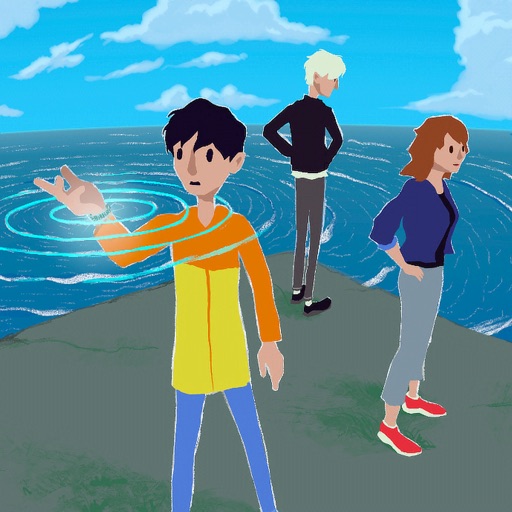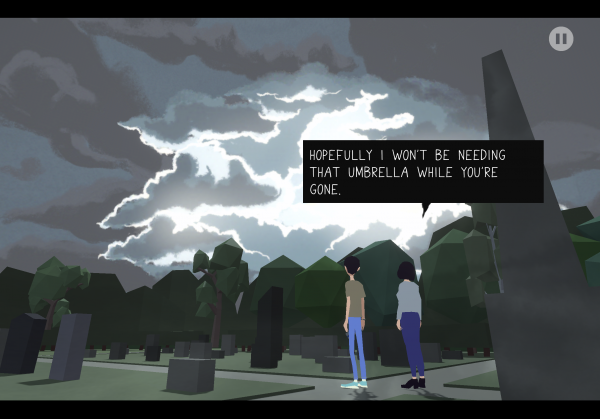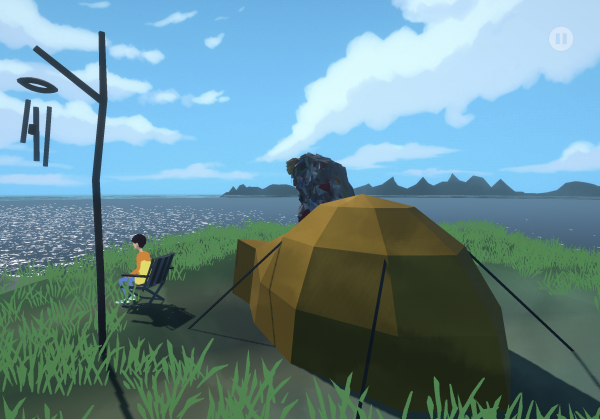Embracelet review

I'm not sure I've been so torn over how to review a game as I have while mulling over my time with Embracelet. The game has some deep, fundamental flaws that make it difficult and annoying to play, but it's also a really powerful narrative experience with tons of heart. Perhaps that's all you really need to know about the game to understand if it's "for you" or not. In my case, I found myself smiling upon reaching the end of the game and I continue thinking about its gorgeous use of music and color to build a sense of place, so I think it's fair to say Embracelet is enjoyable in spite of its significant problems.

Magical mystery tour
Embracelet takes place in Norway following a teenager named Jesper over the course of a summer where he comes across a mysterious bracelet with magical powers. This adventure takes him to the sleepy fishing village of Slepp, where Jesper learns more about his family's past and the origins of the bracelet.
You move through Embracelet's narrative with direct control over Jesper using a virtual joystick and tapping directly on nearby items of interest. Using these simple modes of interaction, you solve puzzles, make dialogue choices, and activate your bracelet to perform acts of telekinesis.
Embrace the pace
The story in Embracelet is pretty small in scope and follows just a few characters, which really works in the game's favor. Slepp is an idyllic, rural community, so matching this setting with a narrative that is mostly heartwarming character moments interspersed with small dramatic reveals allows you to really feel like you're in a real place doing real things with believably real people, even though everything that happens revolves around a mythical object that gives you superpowers.
The real magic of Embracelet though is its overall aesthetic. Its reflective, low-poly visual style pairs beautifully with its phenomenally calm soundtrack which makes every moment in the game hit you with waves of warm, nostalgic, and surreal vibes. It also helps that the game's writing has an immersive quality that keeps you centered on the people involved in the story, and doesn't worry too much about explaining every little thing to you.

Deep ambivalence
The only bummer about Embracelet and its magical world is that playing it almost never feels good. The virtual joystick feels like an odd pairing with the tap-based investigation mechanics, and Jesper's overall movement is sluggish and imprecise. It also doesn't help that you have no direct control over the game's camera, so it's generally difficult and clunky to move around and see things you need to interact with.
You don't need a whole lot of precision to do most of what's asked of you in Embracelet, but it does make the moments where you do need fine control utterly frustrating. In fact there was a time when playing where a puzzle solution was staring me right in the face, but I could only solve it when I looked up a guide that pointed out I wasn't tapping quite as precisely as I should have been. When precision isn't required, these controls are less of a concern, though you can be taken out of the moment when you accidentally steer Jesper into a wall or accidentally make him turn around.
The bottom line
Often while playing Embracelet I felt frustrated. But whenever I took a step away from it, the lilting piano theme and big, beautiful countryside of Slepp found a way to creep back into my mind to draw me back to it. Now, after completing it, I ultimately look back fondly on the experience as a whole, mostly due to its cohesive style and storytelling, while the significant issues of actually playing it feel like a distant memory.


















